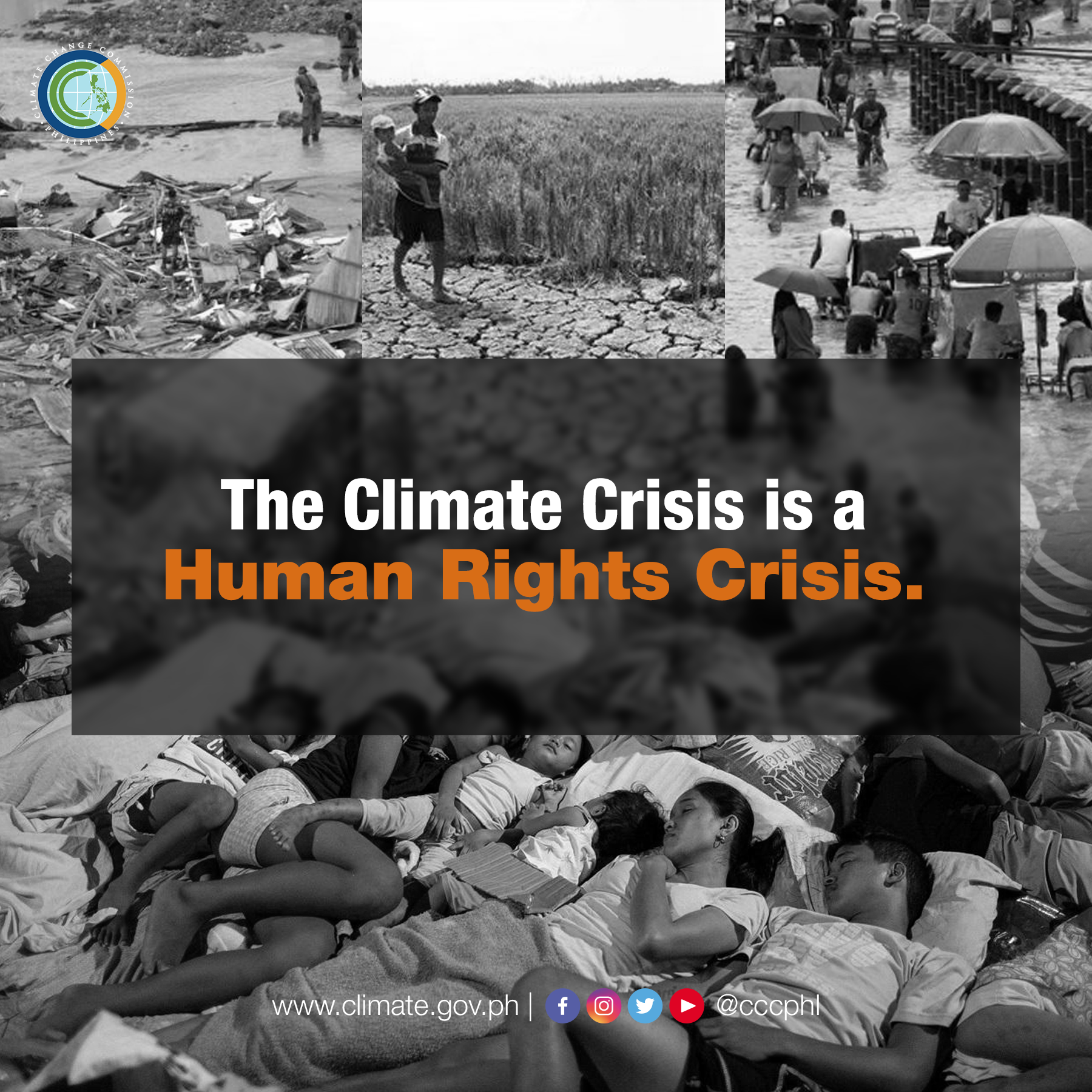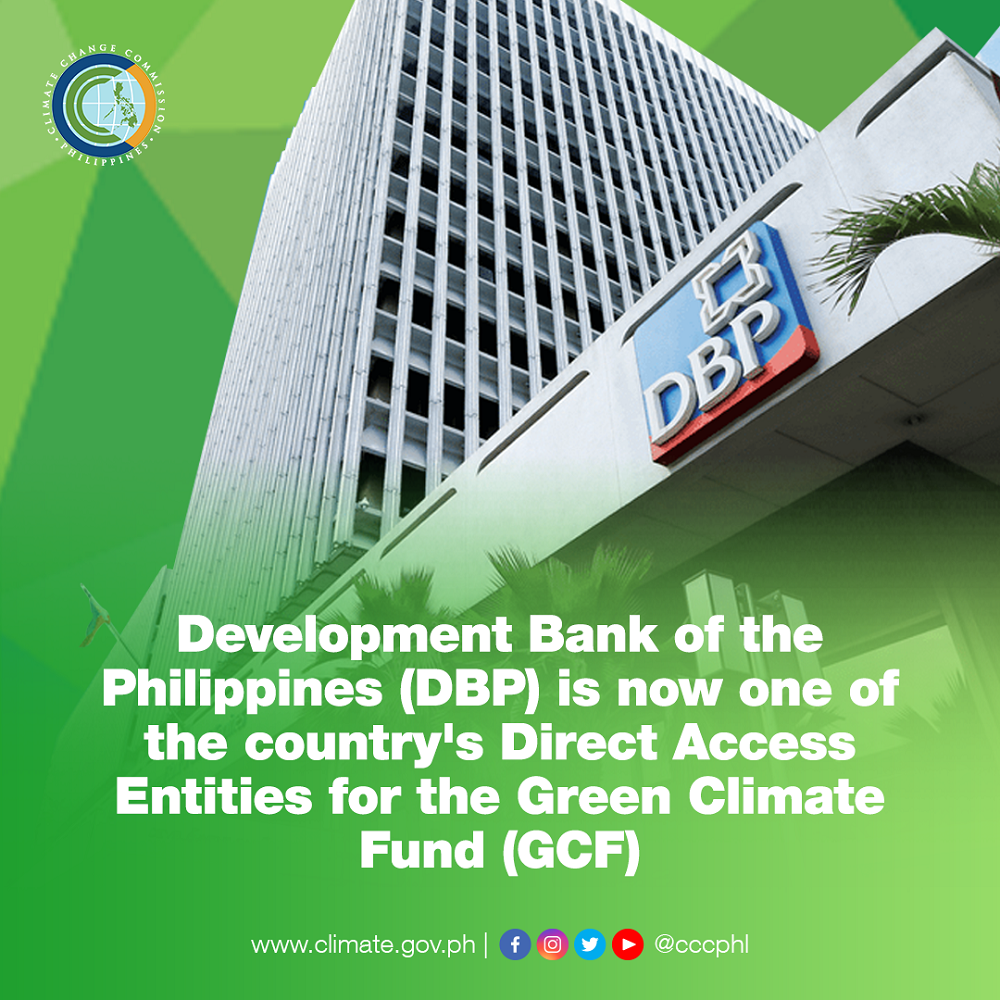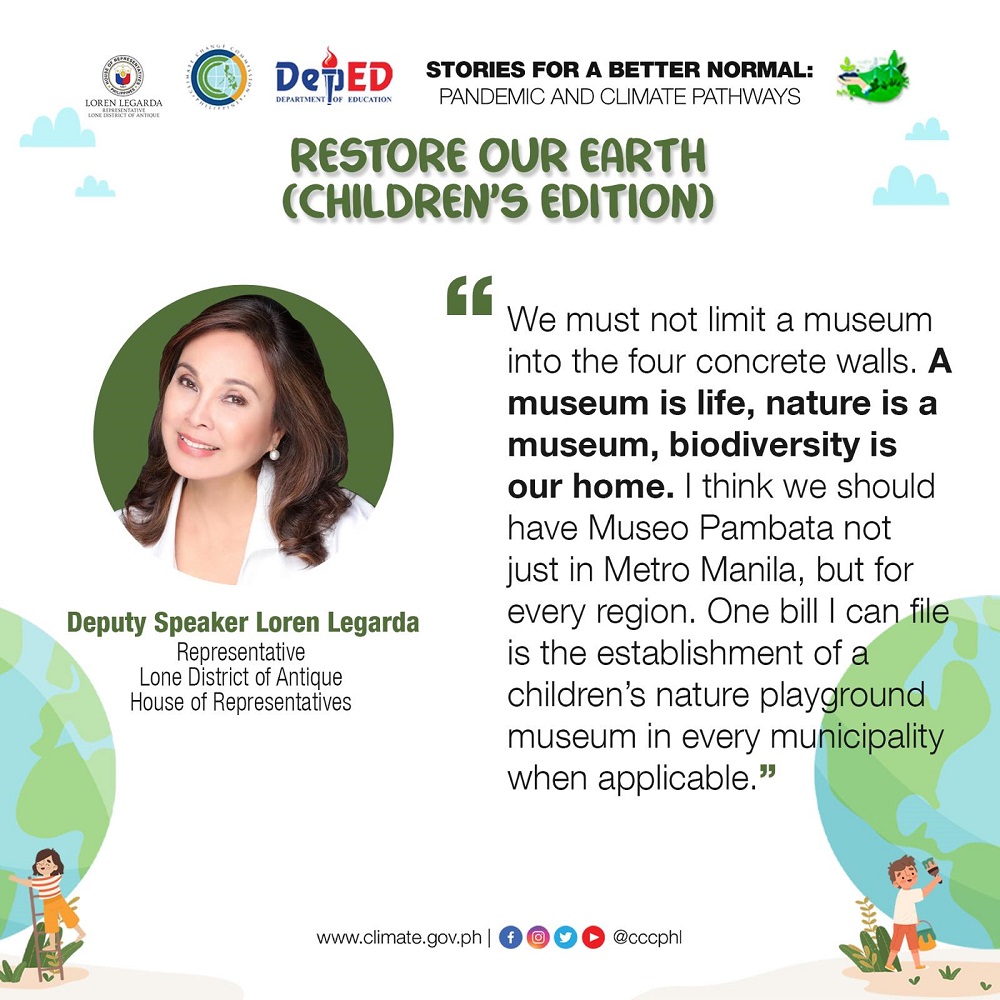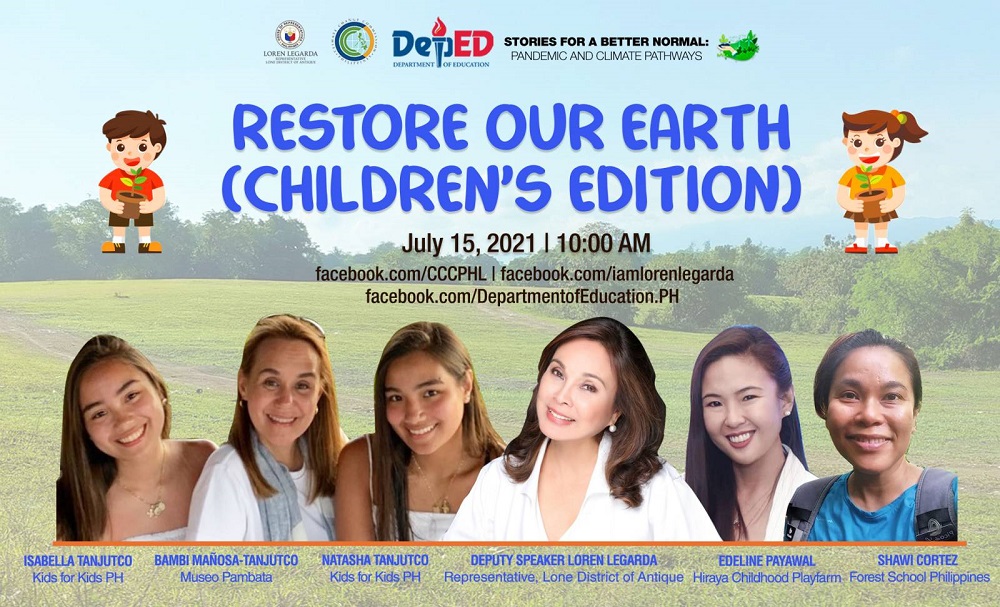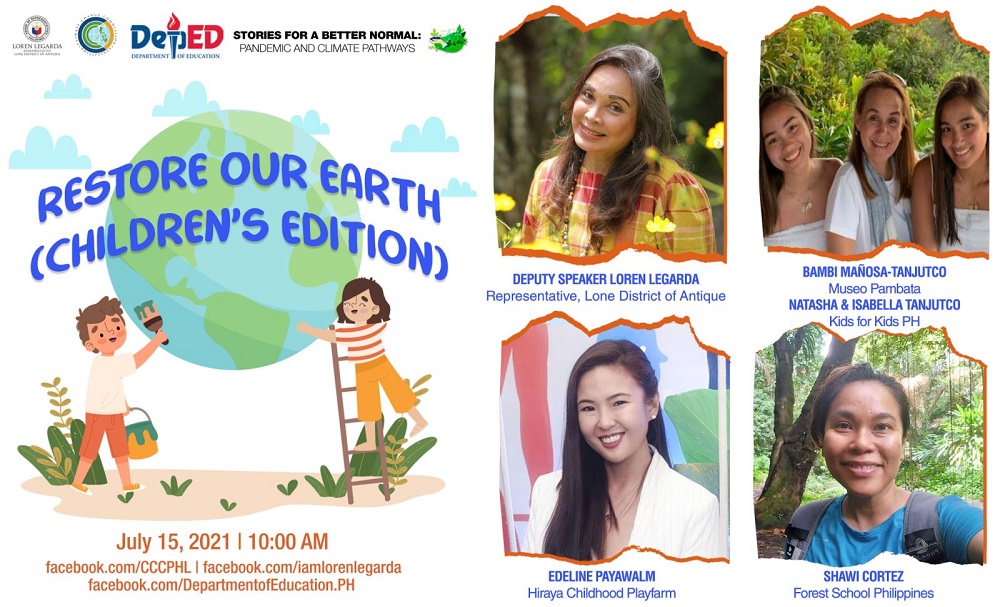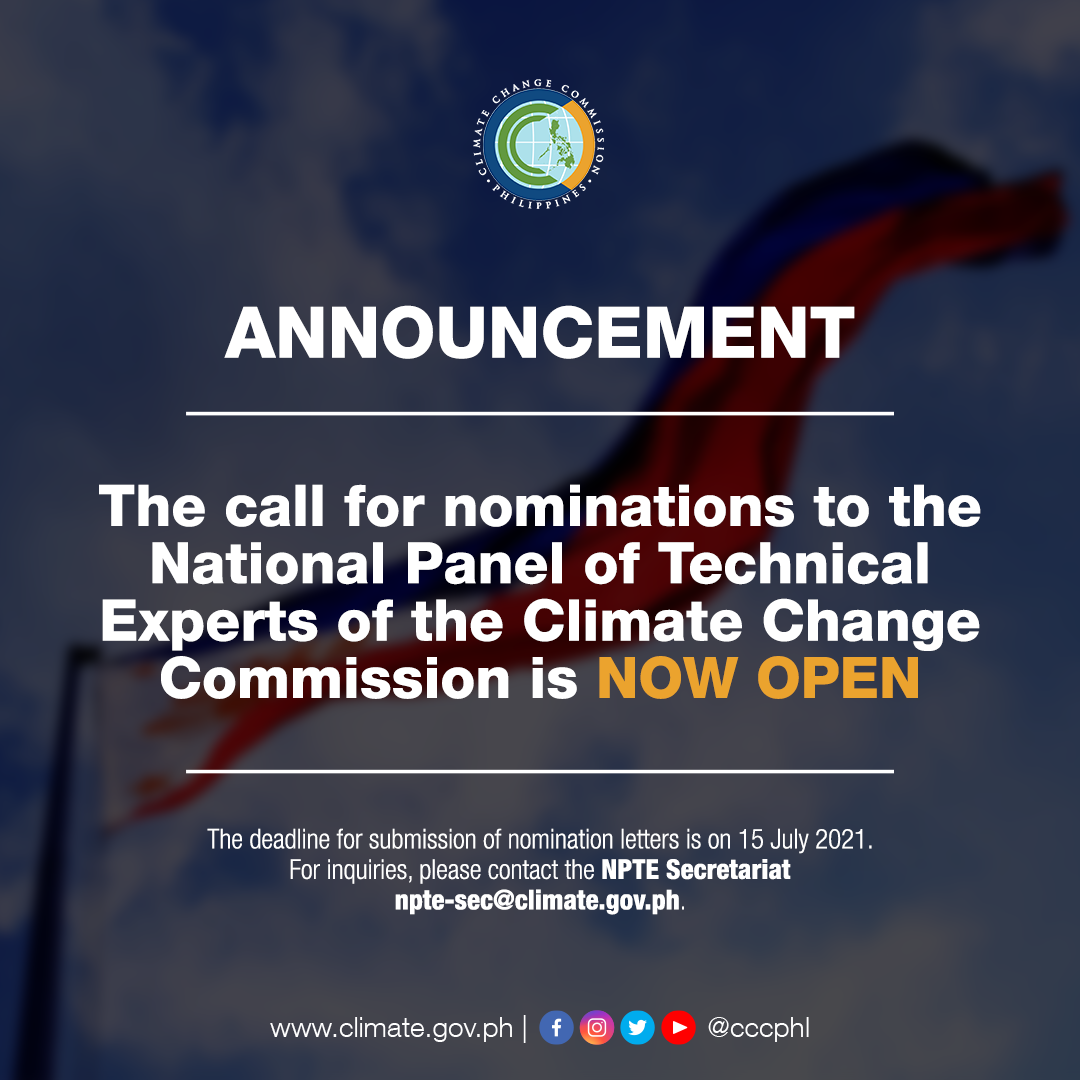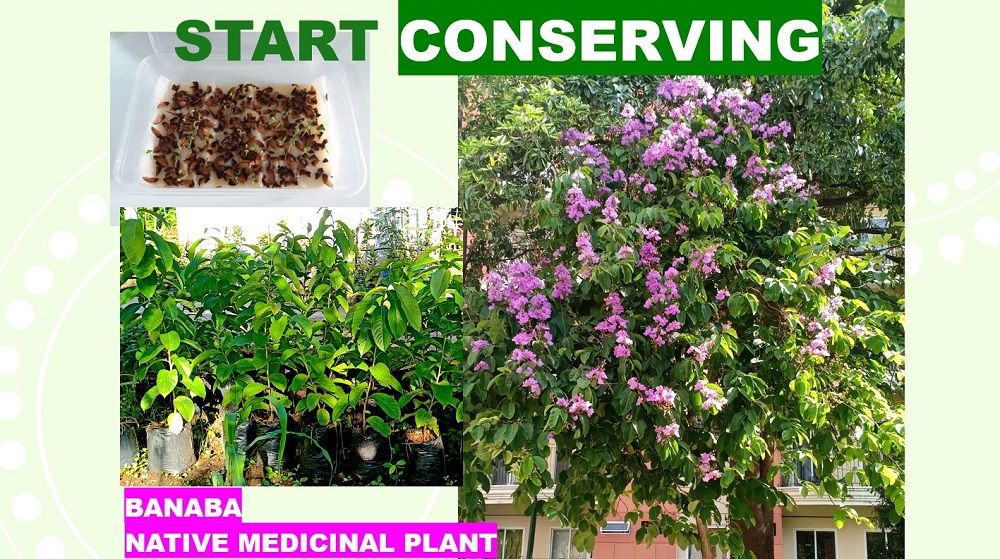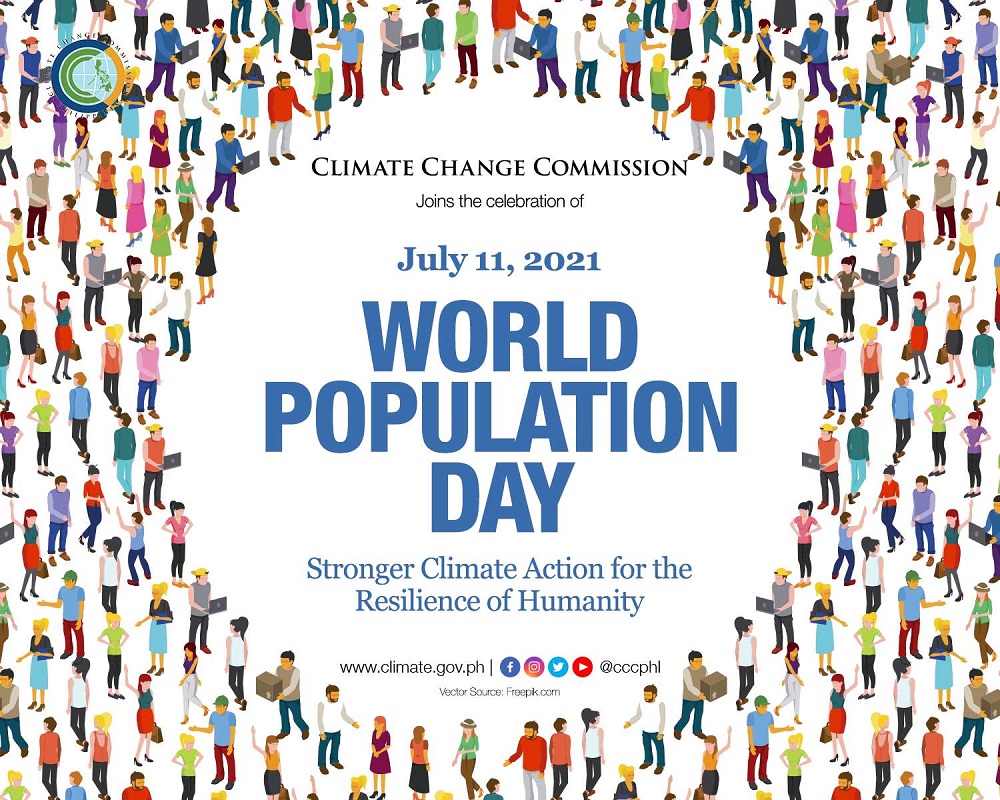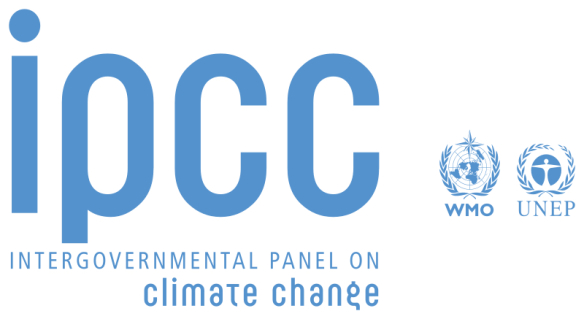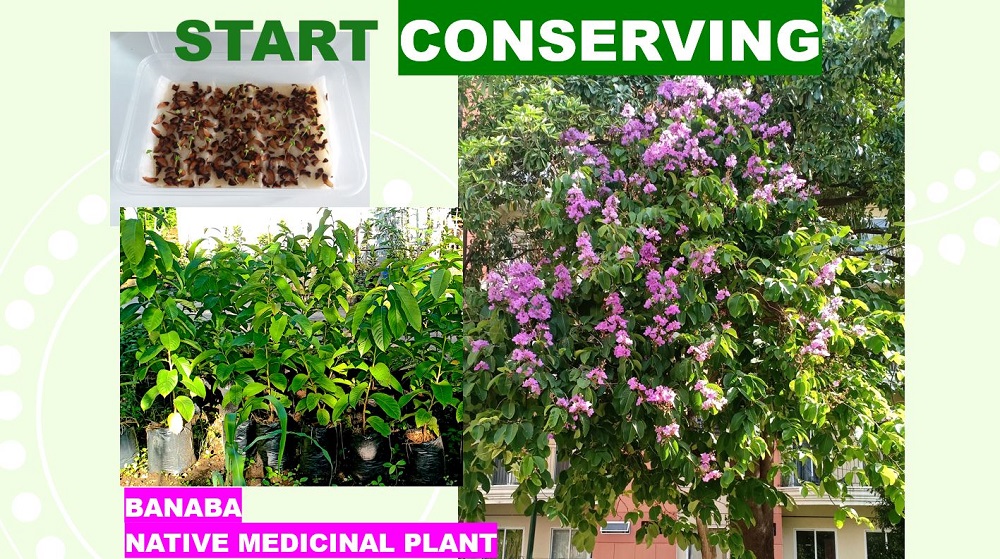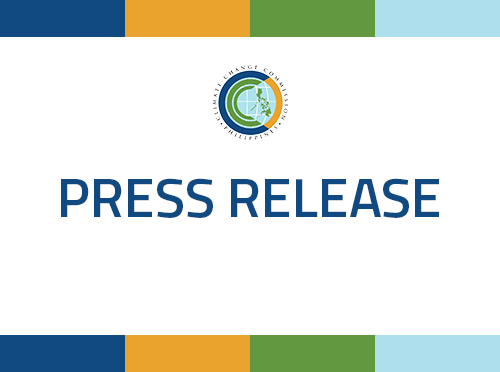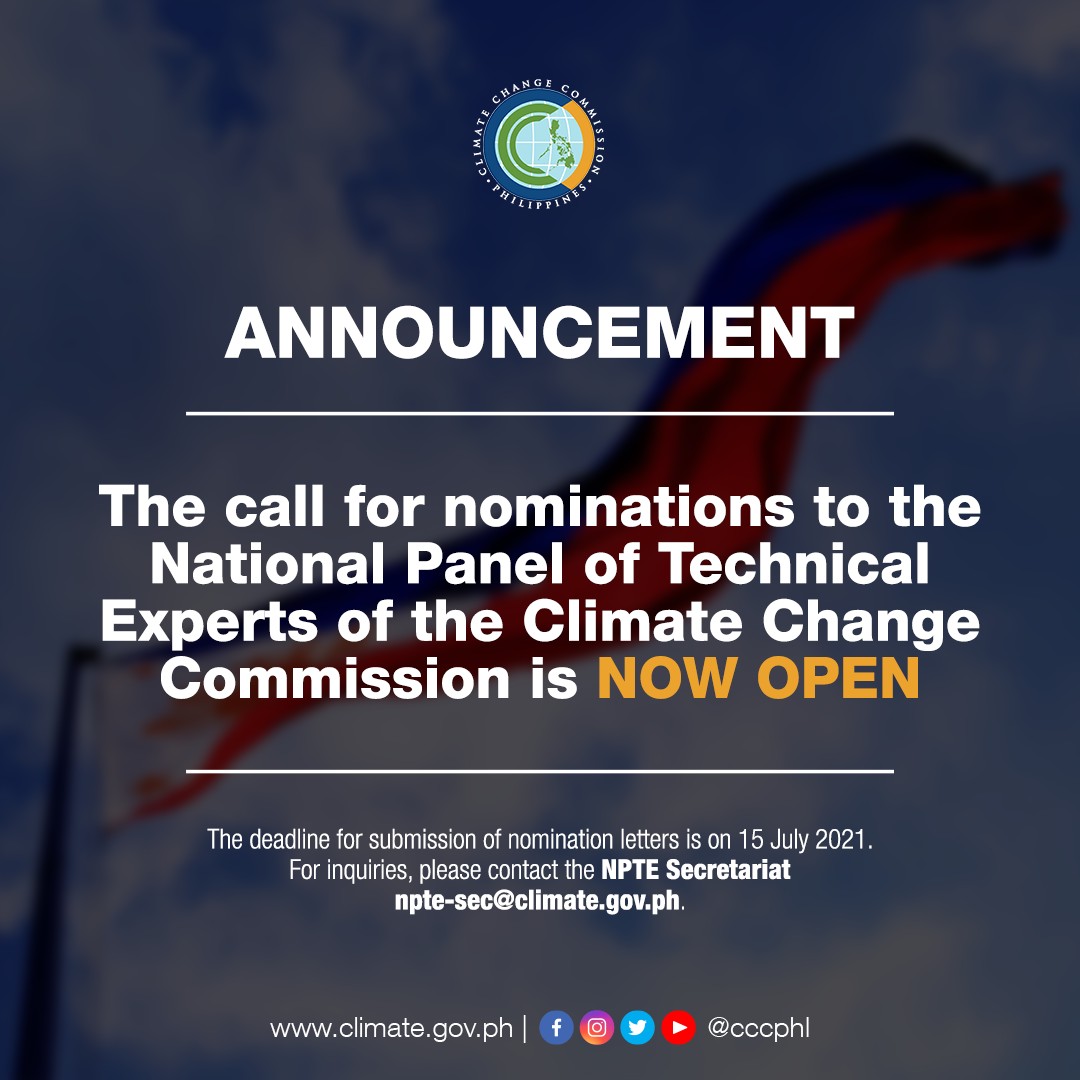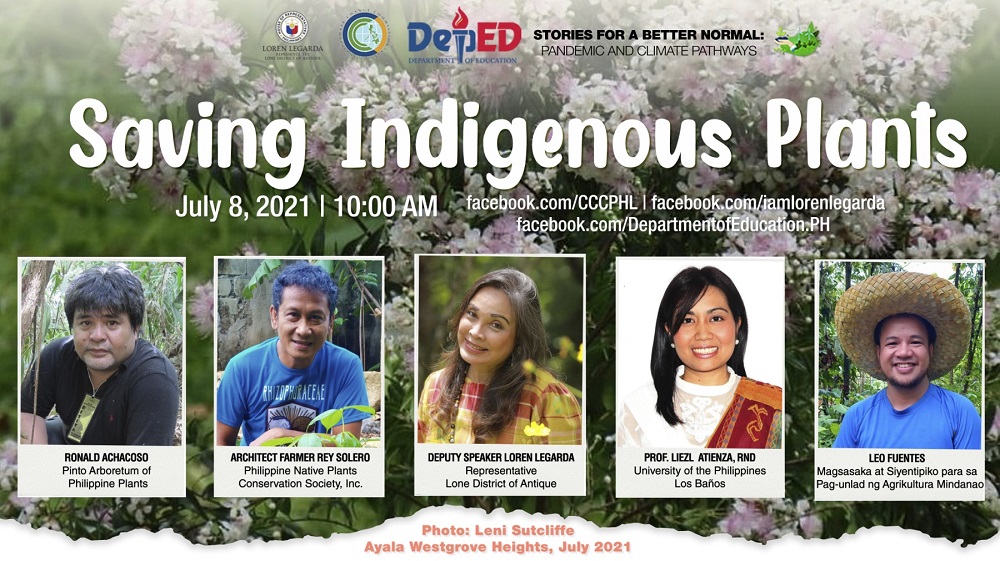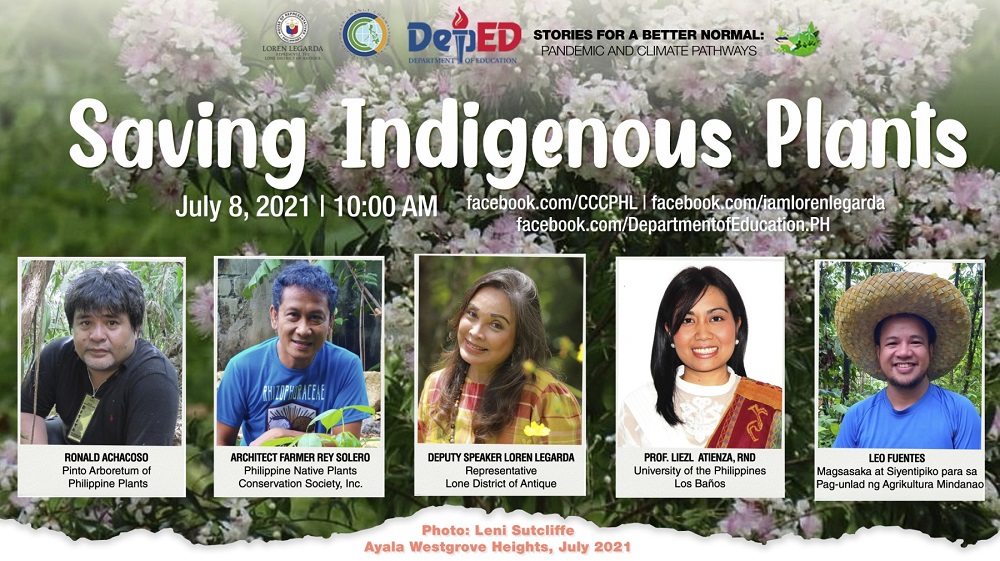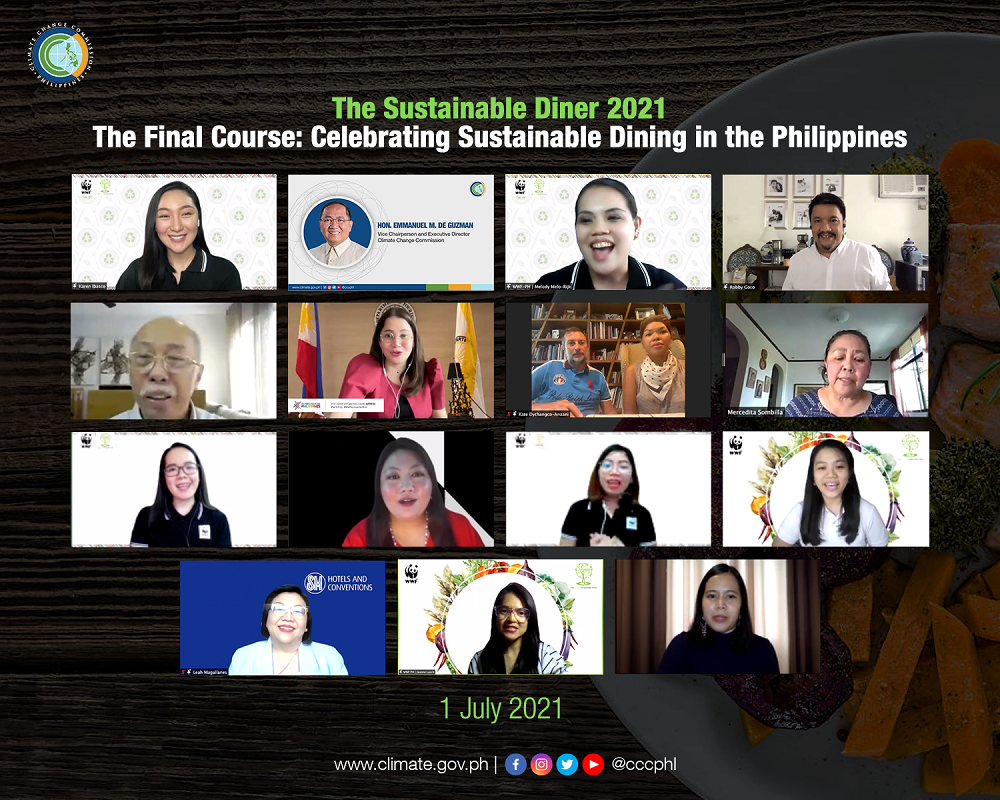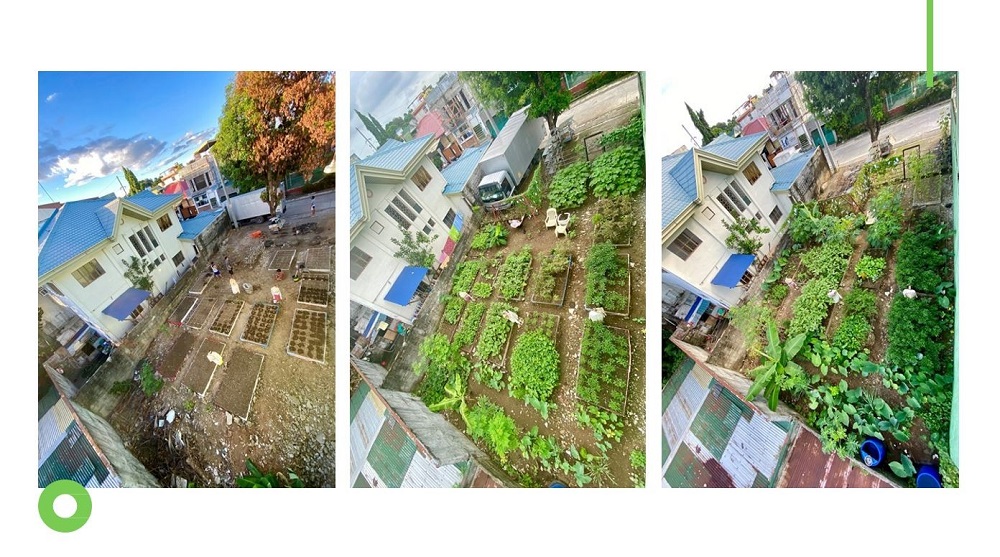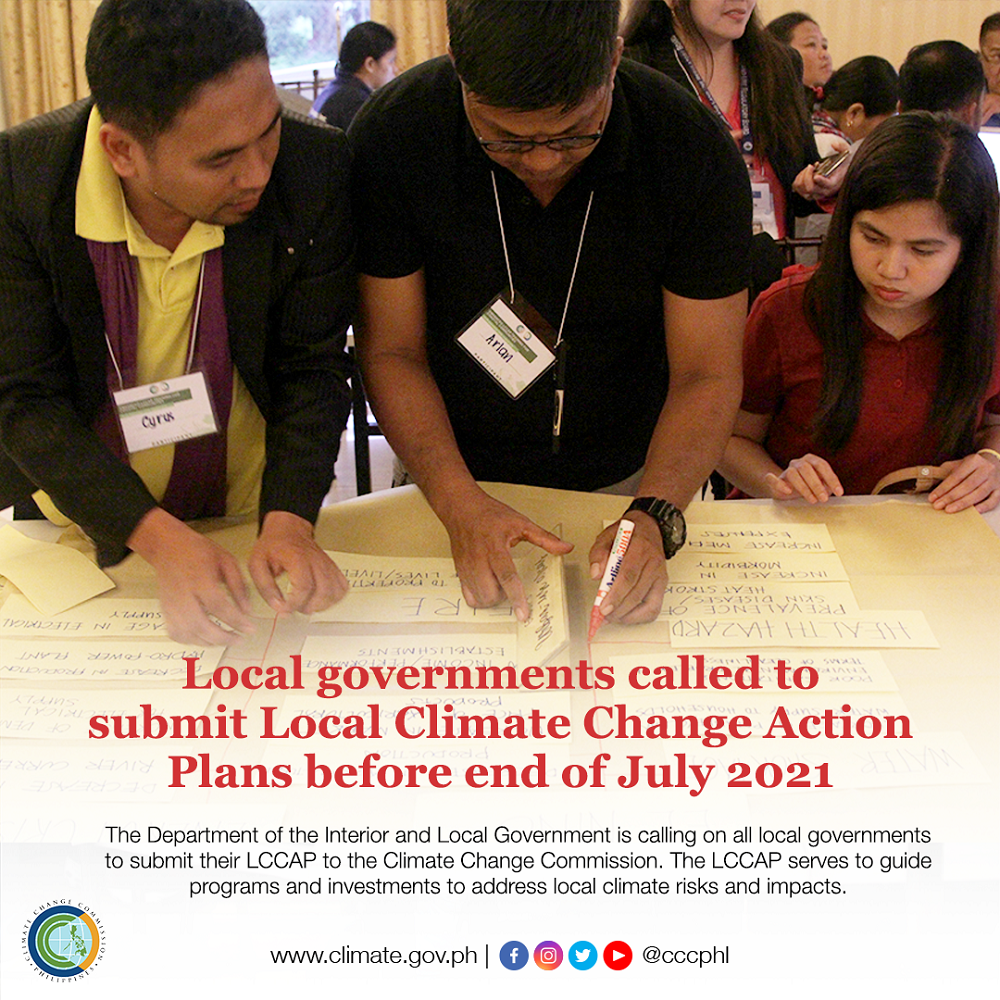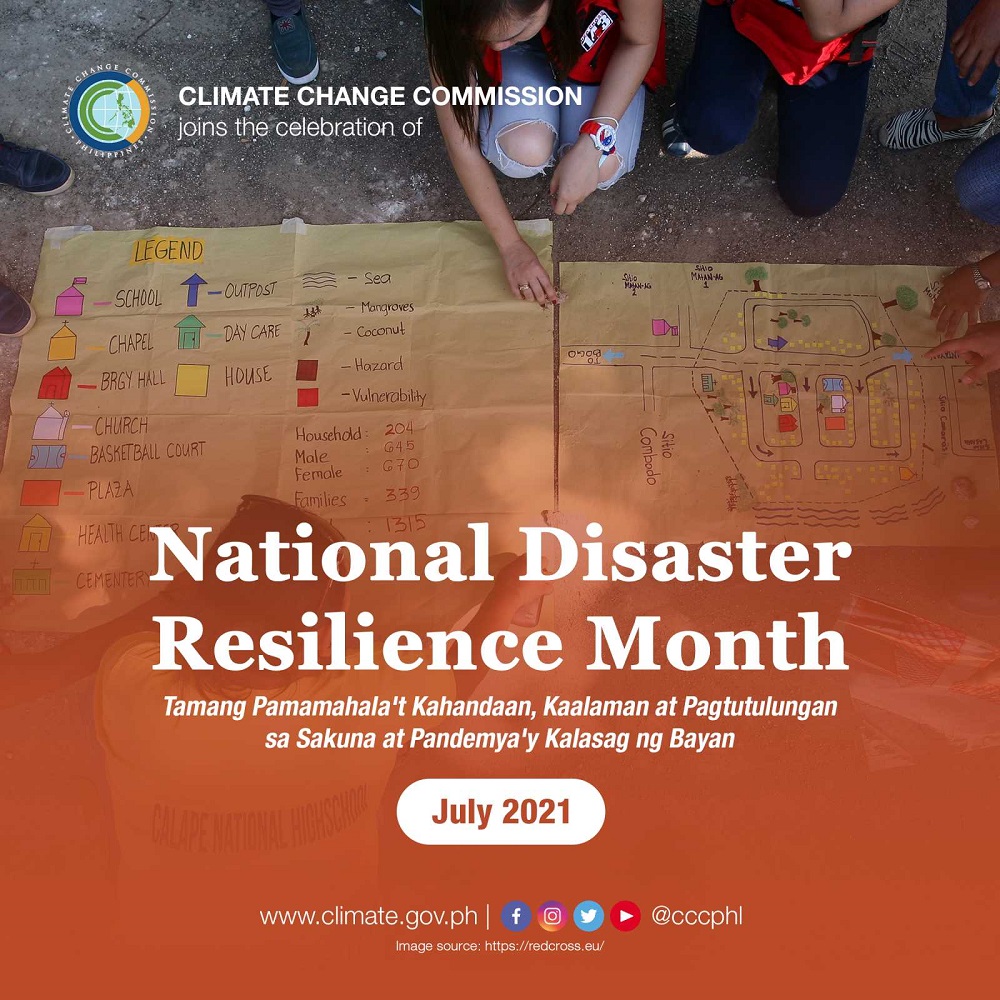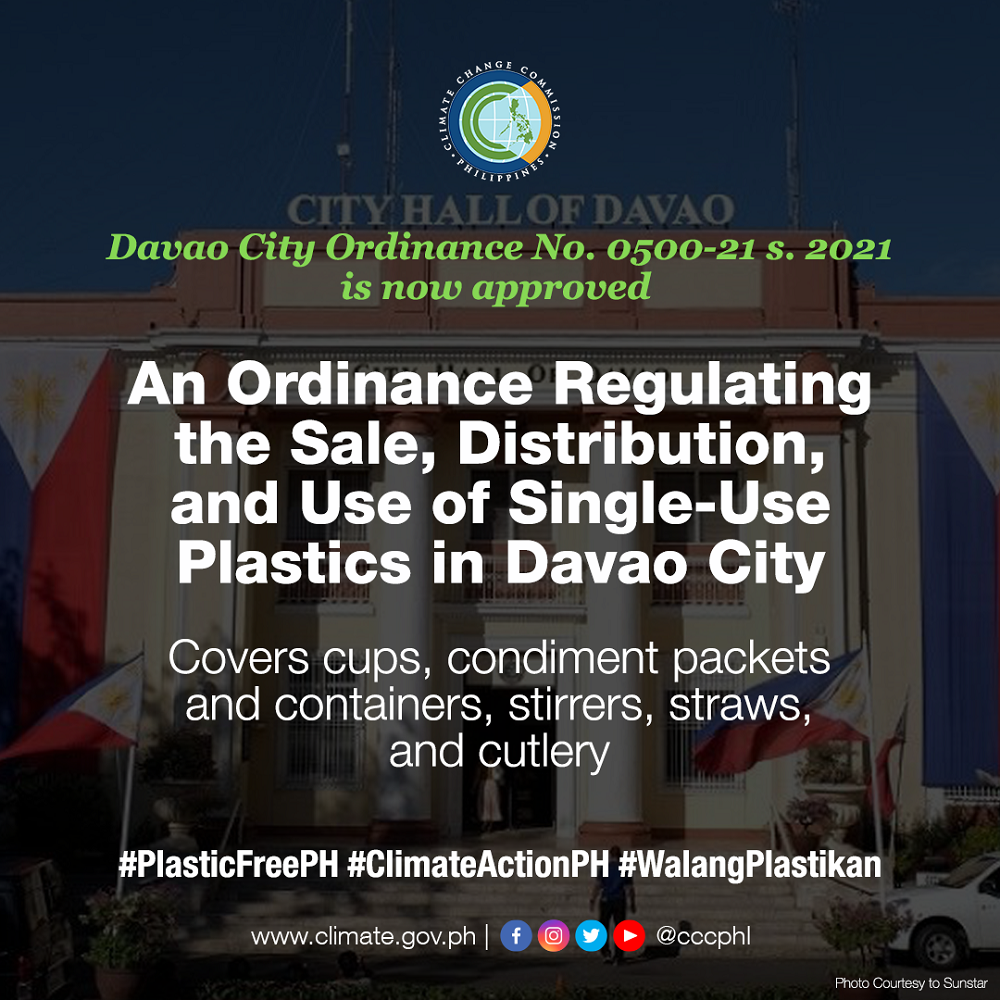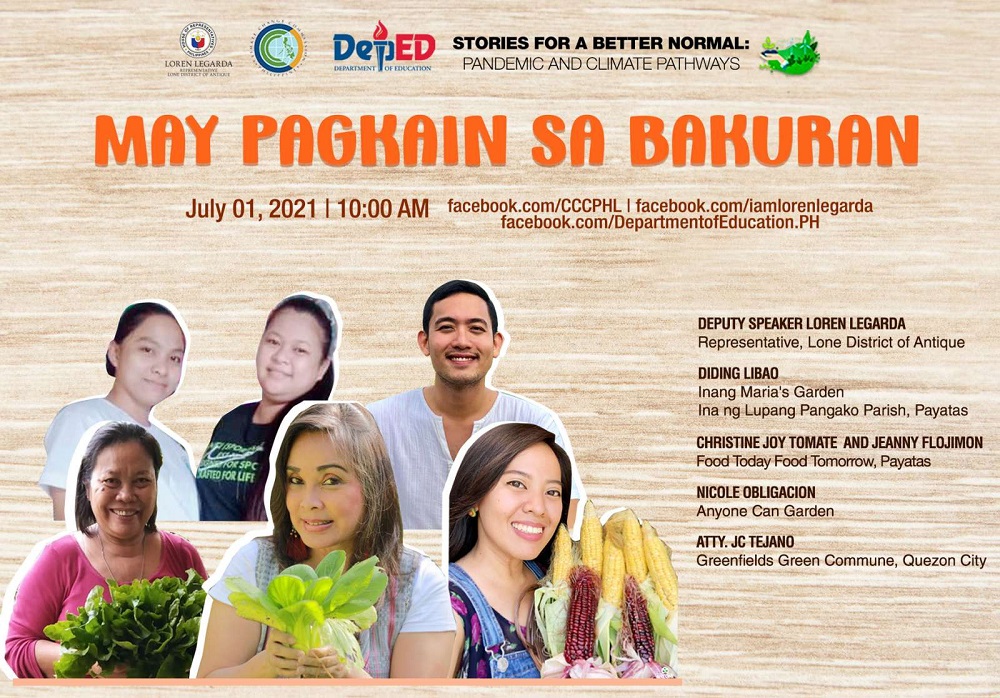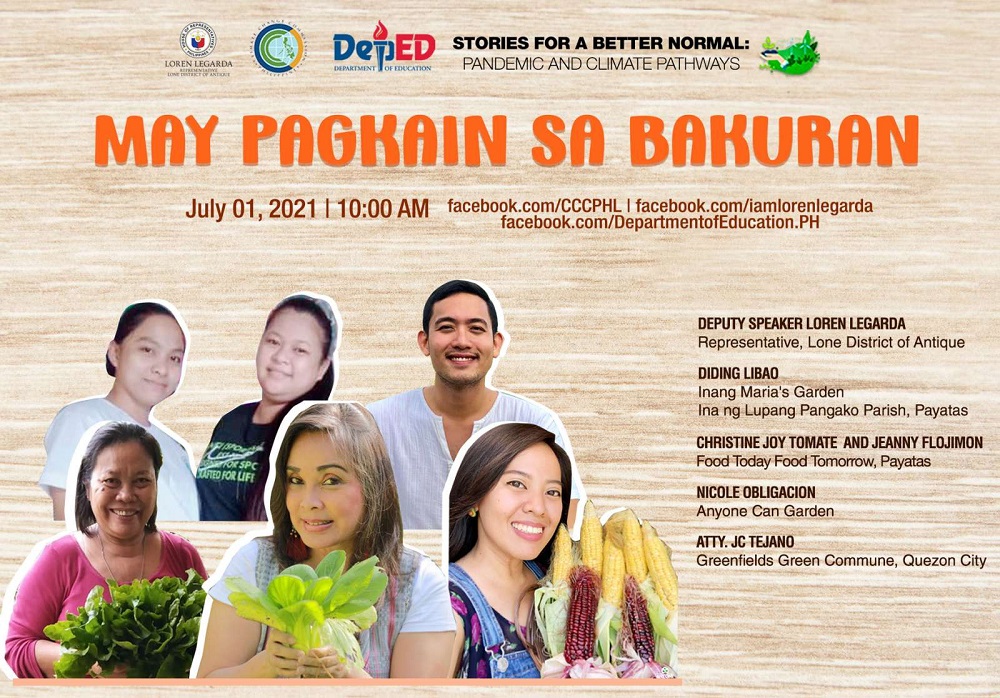Converting vancant lots to community gardens increase access to fresh food and improve food security. Photo from the presentation of Atty. JC Tejano of of Urban Green Communes.
MANILA, 2 July 2021 — The 51st episode of “Stories for a Better Normal: Pandemic and Climate Pathways” featured home and community food gardens from various areas in Metro Manila established during the beginning of lockdown, which helped bring a steady supply of nutritious food during the pandemic and in the better normal.
The online conversation conceptualized and hosted by three-term Senator, now Deputy Speaker and Antique Representative Loren Legarda, featured urban gardeners including Diding Libao of Inang Maria’s Garden in Payatas; Jeanny Flojimon and Letlet Casas of Food Today Food Tomorrow also in Payatas; Nicole Obligacion of Anyone Can Garden in Pasig City; and Atty. JC Tejano of Urban Green Communes in Quezon City.
The guests shared their experience of setting up and maintaining food gardens in their homes, backyards, and empty lots, including in lower-income neighborhoods, and encouraged households and communities to start their own edible gardens, even in small spaces, not only as a source of food, but also as a recreational activity during these challenging times.
Libao shared how the free seeds and nutritious harvests from Inang Maria’s Garden helped parishioners and families in Payatas during the height of the community quarantine due to the pandemic.
"Lahat po kami ay naka-survive dahil sa inisyatibo ng aming parokya. Malaking tulong po ang simbahan na nagsimula sa pagbigay ng punla, nakakatipid kami sa aming pamamalengke at masaya po ang aming samahan kasi dito po namin nilalabas ang stress sa buhay lalo na ngayong pandemic,” said Libao.
Flojimon and Casas, members of the Pinagkaisang Lakas ng Mamamayan ng Payatas, an organization that promotes the right of the urban poor to have decent work and food, shared how the residents themselves took the initiative to set up backyard and container gardens for a healthy supply of food, particularly vegetables.
Their group is one of the 20 urban grower groups who developed the ‘Food Today, Food Tomorrow’ project, and now organizes weekly ‘Kusinang Bayan’ in Payatas.
"Dito sa area, nag-inisyatibo ang mga mamamayan na kahit backyard lang ‘yan o kahit sa paso, pag ‘yan ay nataniman, malaking tulong na ito sa pang-araw-araw na pagkain, lalo na ngayon na mahal ang gulay kung bibilhin...kahit kaunting espasyo lang sa gilid ay mapagtatamnan na," said Flojimon and Casas.
Obligacion, who has been gardening since 2013 in the balcony of her condominium, spoke of how she teaches locals and foreigners tips on how to grow their own food through her online platform, ‘Anyone Can Garden.’
"Ang isa po talaga sa goals ko for Anyone Can Garden ay makapagbigay ng step-by-step tips or guide na madaling maintindihan at mai-apply. And to be honest kahit ako din po ay nai-intimidate ‘pag first time ko pa lang po itatanim ang halaman at first time aalagaan. May fear talaga na 'pano kung magkamali ako' o 'pano kung mapeste na naman ito' pero ang pinanghahawakan ko talaga ay ‘yung brand name na Anyone Can Garden," said Obligacion.
Atty. Tejano enumerated the environmental benefits and opportunities they saw while converting nearby empty lots.
"Habang naglilinis, naisip namin na taniman na ‘yung lote for two reasons: Una, para hindi na magtapon ulit ng basura doon sa bakanteng lote, kasi kapag mayroon nang tumutubo, mayroon nang gulayan, mayroon nang mga pananim doon sa bakanteng lote, mahihiya na ‘yung mga tao na basta na lang magtapon ng basura. Pangalawa, para maiwasan na magpunta ng palengke. Around the start of community quarantine ay paranoid ang mga tao na pumunta ng palengke para mamili," said Tejano, co-founder of Urban Green Communes, a group of more than 20 community gardens in Metro Manila.
During the pandemic, they transformed a vacant lot that was being used as a dump into a community garden. They envision to build similar gardens in every barangay in Metro Manila, where people grow and share food, take charge of urban life, take care of everyday health, and regenerate ecosystems.
Legarda, with co-host Atty. Ipat Luna, supported the initiatives of the urban gardeners and urged individuals to install their own food garden, even in small spaces, using recyclable materials, to ensure food availability and supply at home and in their communities, as well as the government to switch to giving plant kits and sustainable food as a way to provide assistance and support to the families reeling from the economic impacts of the pandemic.
“Sa panahon ng pandemic, sa panahon ng pagbibigay ng social amelioration, sana ay ibahin natin, itweak natin ang government programs. Huwag de lata mentality, sana isama din ang preskong tanim, preskong gulay, at isama ang buto, ang soil, at basic tools. 'Pag binigyan ng bigas at de lata, ilang araw lang ay gutom na naman ang pamilya. Pero 'pag binigyan natin ng starter kits sa urban gardening, tuluy-tuloy na ‘yan hanggang sa magkaroon sila ng gulayan at tindahan,” Legarda concluded.
As an online discussion to promote health, environmental consciousness, and climate-adaptive practices, "Stories for a Better Normal" aims to change the mindset of individuals, families, and communities by demonstrating ways in which a ‘better normal’ can be realized.
This online discussion is organized in partnership between the Office of Deputy Speaker Legarda and the Climate Change Commission, with support from the Department of Education, Philippine Information Agency, Institute for Climate and Sustainable Cities, The Climate Reality Project-Philippines and Mother Earth Foundation.
July 01, 2021 Thursday

